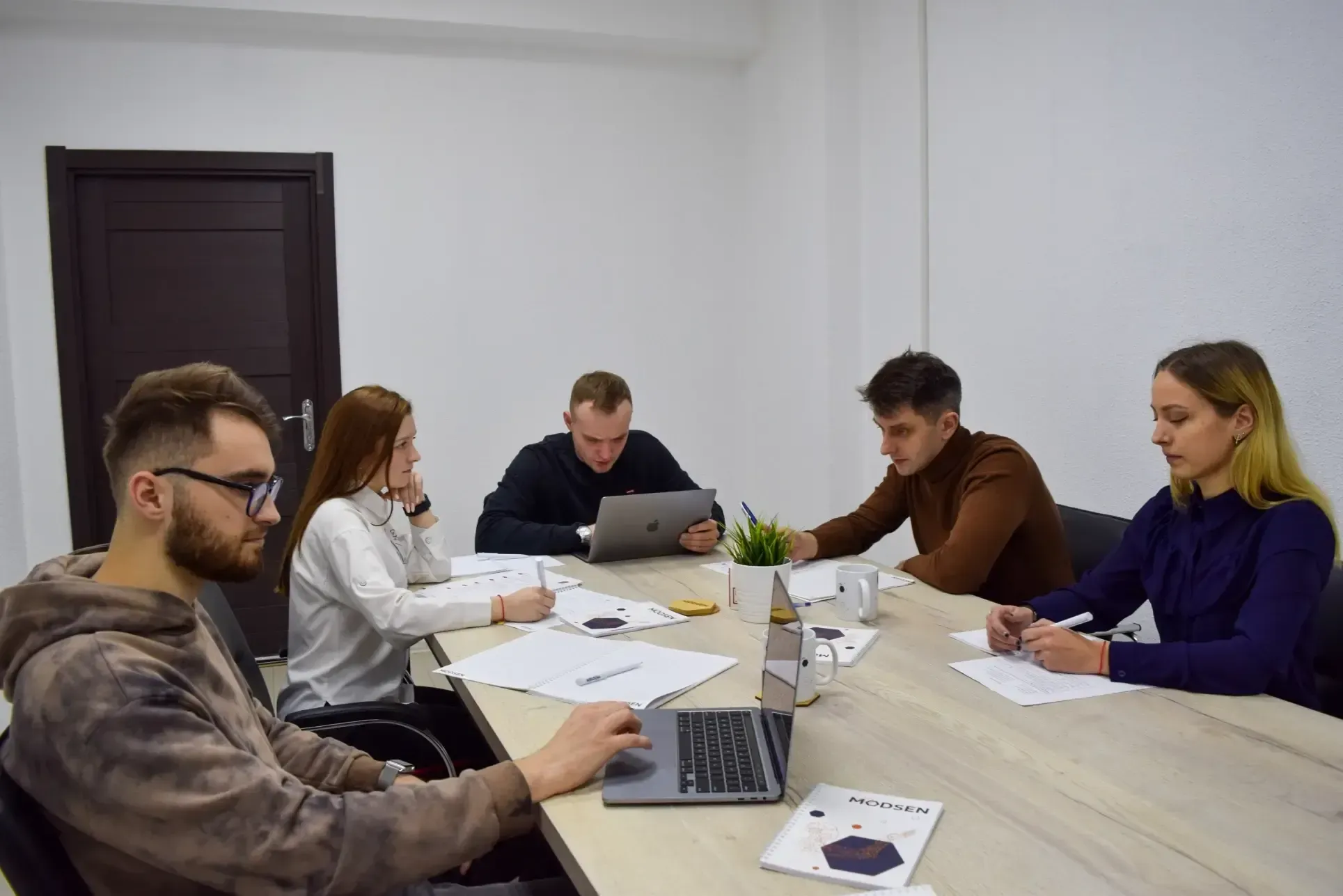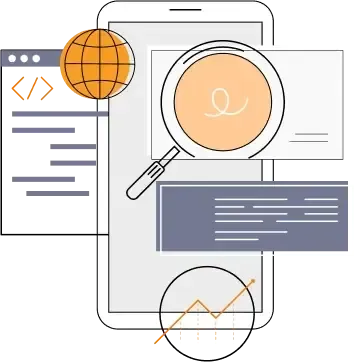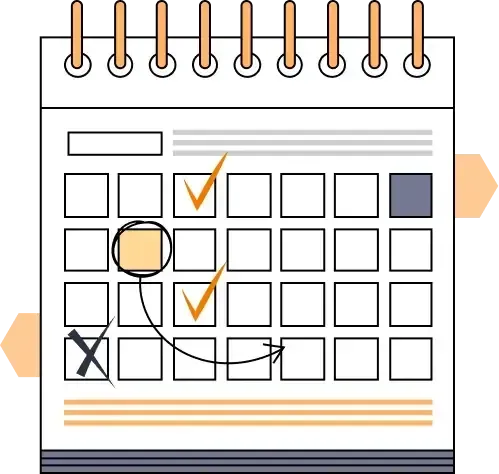
AI-Based Logistics Platform
19%
audience growth
27%
faster delivery
41%
fewer errors
Challenge
Develop a comprehensive logistics solution to centralise all services and operations within a single, easy-to-use AI-enabled platform.
Solution
AI-powered logistics platform with user-friendly web and mobile interface that unifies all parties and provides extensive functionality and tools for freight transportation.
Tech stack
.NET, Azure (incl. Azure HDInsight, Azure AI Services, Azure Power BI), Postgres, ClickHouse, Angular.
Client
Modsen was approached by a customer in the West European logistics industry. The customer specializes in facilitating collaborative transportation processes over long distances and required Modsen's development services to centralize their services and operations within a single, user-friendly, AI-powered platform dedicated to logistics.



Challenge
The client’s ambitious vision was to create a platform that would unite shippers, transport operators, and freight brokers in a convenient and transparent way. The challenge was to transform this vision into a fully functional digital space, where all parties could interact and manage their operations with ease. The platform had to be equipped with the latest technological solutions to provide Big Data processing and analysis, seamless order and shipment management, and real-time performance monitoring.
To produce a quality combination of all details the Modsen’s team was challenged to develop a truly groundbreaking solution that would include:
- an easy-to-use platform uniting all parties involved in the freight transportation process;
- extensive functionality and necessary tools for each user;
- well-thought-out solutions for sensible organisation of order and shipment management;
- big Data processing, its combination in one place;
- control, reporting, and performance history of particular deals.

Got a similar software development project on your mind?
Estimate a precise timeframe for its implementation.
Team
1
Solution architect
4
.Net developers
2
Angular developers
2
Data engineers
1
BI engineer
1
DevOps engineer
1
UI/UX designer
3
Testing engineers
1
Project manager
1
Business analyst

Process
1 Initiating Phase
To initiate the project, Modsen assembled a cross-functional team comprising Project Management, Business Analysis, Solution Architecture, UI/UX Design, and Software Engineering. The software engineering team included Java and Angular developers, Big Data engineers, and testing engineers, with additional support from a DevOps engineer. Together with the client, Modsen defined the channels of communication, established project timelines and budgets, and outlined other essential project requirements.

2 Discovery Phase
The discovery phase was essential for the team to delve deep into the project’s core and gain an in-depth understanding of the client’s needs. To achieve this goal, they conducted a thorough analysis of the market and audience to determine the project’s scope and potential limitations. This was complemented by several business trips to meet with the client and acquire additional information about their specific requirements and project conditions. To ensure that all project requirements were met, the team meticulously documented the process through technical and business analysis documents. This allowed them to identify the necessary tools and resources to create a functional and user-friendly AI-based logistics platform. With a clear understanding of the client’s needs, Modsen then worked to design a technical solution that aligned with their requirements and provided the desired functionality.


Gather project requirements
Come up with the tech solution
Analyse market and audience
Make the first design
Meet with the client
Get the client's approval
Document everything
Move forward
3 Planning Phase
To kickstart the software development, a project blueprint was created by outlining the objectives and goals for the development process. The team broke down the project into various tasks, meticulously allocated timelines, and identified the critical success factors for each task. Through brainstorming sessions, challenges that could hinder the project’s progress were identified and a contingency plan was proactively developed to mitigate them. Modsen also engaged in detailed analysis and evaluation to ensure that the plan was robust and achievable, given the available resources.




4 Development process
During the development phase, the team followed Agile Scrum methodology and completed the following steps:
Setting the stage:
By leveraging cutting-edge tools and technologies, a robust infrastructure was established by Modsen to lay the foundation for the project. They employed Git, Azure, CI/CD, and code analyser systems to enable seamless collaboration and efficient deployment throughout the project’s lifecycle.
Architecture design:
Implementing the architecture design was a meticulous process that involved using industry best practices and taking into account the project’s unique requirements. The team conducted an in-depth analysis to ensure that the application would be scalable and easy to maintain. They utilised modern design patterns, such as microservices architecture, to create a modular and flexible system that can be easily modified or expanded in the future. The solution architect also considered the security of the platform and ensured that it was designed with safe coding practices to protect against potential threats.
Iterative development:

The team adopted a comprehensive approach to platform development, executing a series of iterative two-week sprints that combined coding, testing, and launching of new features. Following each sprint, Modsen thoroughly tested and stabilised the platform, including AI-enabled logistics tasks. They employed cutting-edge testing methodologies and tools to identify any glitches, bugs, or system failures that could undermine the application’s functionality. After each iteration, the team launched the latest version of the platform, with all essential features fully operational and available to users. This strategic and carefully planned approach in the future culminated in a successful launch of the application, as Modsen leveraged their deep expertise and Agile Scrum methodology to develop a powerful, user-friendly AI-based logistics platform that met the client’s needs.
Regular demos:

During the demonstration phase, the team showcased the application’s features and functionality to the client in regular two-week sprints, highlighting the benefits of integrating AI technology in logistics and how the solution could improve their operations. The demos provided an opportunity for the client to give feedback and make sure that the project was on track with their requirements. This process allowed for any necessary adjustments or changes to be made to the project before moving forward.
Third-party audit:
The team conducted a comprehensive third-party audit of the platform’s technical and security aspects to ensure that the solution met the necessary standards for logistics product certifications. This included auditing the application’s compliance with industry-standard protocols and regulations, as well as ensuring the platform’s ability to handle sensitive logistics data in a secure manner. The audit covered areas such as data encryption, access controls, disaster recovery procedures, and more.
Client greenlight:
The moment of truth arrived as the client conducted rigorous acceptance testing to ensure that the platform aligned with their requirements and specifications. The team provided support and worked closely with the client to address any issues or concerns that arose during the acceptance testing phase. Once all issues were resolved, the platform was deemed ready for launch, and the team proceeded to the final phase of the project.
5 Closing
In the closing phase, Modsen ensured the AI-based logistics platform was successfully deployed into production. They provided the client with all the necessary deliverables, including the source code, technical and business analysis documents, and user guides so that the client had all the required information to operate the platform smoothly. The team also conducted a knowledge transfer session to assist the client in transitioning to the new platform and provide training on how to use it. Lastly, they held a retrospective meeting to reflect on the project’s success and identify areas for improvement in future projects.
Product
The resulting product is a cutting-edge logistics platform that utilises AI technology. It is an easy-to-use web-based application that unites all parties involved in the freight transportation process, offering extensive functionality and necessary tools for each user. The solution provides well-thought-out features such as:
- AI-driven delivery cost prediction based on 50+ parameters, ensuring accurate and efficient cost calculations for all shipments;
- in-depth control of the delivery process – tracking departure, movement graphics, pop-up notifications with the freight information, ensuring real-time visibility of the shipment’s status;
- real-time shipment tracking, providing the location and condition of the freight throughout the transportation process;
- full automation of document management, streamlining the documentation process by eliminating the need for manual entry and reducing errors;
- user-friendly information search within the platform, allowing users to easily search for and access relevant information;
- functional messenger system, enabling communication between all parties involved in the shipment process, ensuring efficient and effective communication.
Modsen found this project highly engaging and worked closely with the client to ensure that the solution met their specific requirements. During the project development, the team provided innovative ideas and perspectives that enhanced the original idea. The resulting AI-based platform is a highly robust and efficient logistics management system that streamlines the freight transportation process and offers extensive functionality to all users.

Result
The logistics platform developed by Modsen had a significant impact on the client’s business, resulting in the following improvements:
- engaging new clients: The client reported a 20% increase in new clients within the first year of launching the platform. The platform’s user-friendly interface and extensive functionality proved to be an attractive offering to potential customers;
- reduction in the time required to complete routine tasks: Automation of routine tasks led to a 30% reduction in the time required to complete these tasks. This allowed the client to allocate more time to strategic initiatives, leading to increased profitability;
- decrease in the number of mistakes and emergencies: The platform’s reliable process control and planning led to a 40% decrease in the number of mistakes and emergencies. This not only saved the client time and money but also enhanced their reputation for reliable and efficient logistics services;
- increase in the speed of delivery processes: Real-time shipment tracking and control led to a 25% increase in the speed of delivery processes, enabling the client to offer faster delivery times and gain a competitive advantage in the market.
Overall, the AI-powered logistics platform developed by Modsen led to significant improvements in the client’s business operations, resulting in increased profitability, enhanced efficiency, and improved customer satisfaction.
19%
increase in new clients35%
less time on routine tasks27%
faster delivery processes41%
fewer errors and emergencies